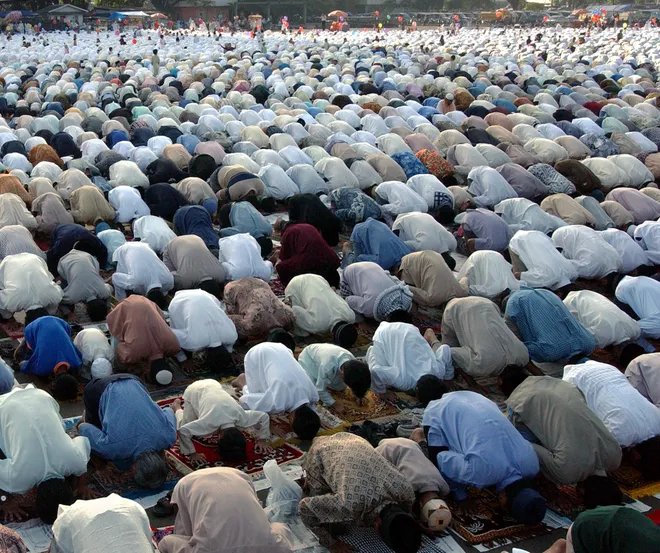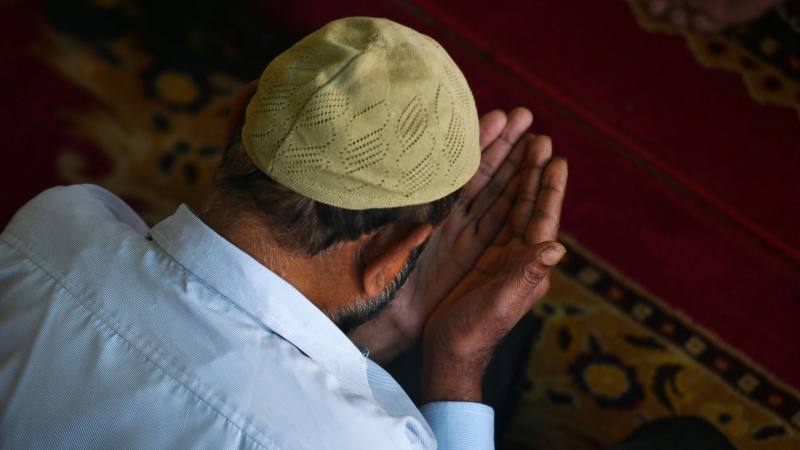What is Eid al-Fitr? What to know about the Muslim holiday at the end of Ramadan
As Ramadan comes to an end, Muslims are getting ready to commemorate the month of fasting, spirituality and reflection.
Eid Al-Fitr, Arabic for “the celebration of breaking the fast," is expected to fall on or around Wednesday, April 10, this year. The holiday starts once the crescent moon signifying the start of the month of Shawwal in the Islamic Hijri calendar is spotted.
During the month of Ramadan, Muslims fast from sunrise to sunset and spend time in self-reflection and prayer.
What is Eid al-Fitr?
Eid al-Fitr marks the first day Muslims return to their regular lifestyles. In fact, it's forbidden to fast on this day.
"God has given us that one special day for us to celebrate our ability to get through that one month," Khalid Mozaffar, director of communications and outreach at the American Islamic Association in Frankfort, Illinois, told USA TODAY.
What do Muslims do on Eid al-Fitr?
The Eid prayer is a cornerstone of celebration. Muslims will congregate in their local mosques in the early hours of the first day of Eid to perform this prayer.
Muslims are also obligated to pay Zakat al-Fitr, a mandatory charity of food that must be given before the Eid prayer.
Every Muslim who can afford to do so is required to donate what is roughly a plate of food.

The donations help people celebrate Eid no matter their financial situation, Tareq Alkhudari, a Kuwaiti human rights activist, told USA TODAY.
Since it's difficult for many people to give an actual plate of food, many Muslims may choose to donate to charity organizations, like Islamic Relief, that have estimated the cost of a plate of food, which will feed those in need on their behalf.

How else do they celebrate?
Eid celebrations all across the globe vary, but it's not uncommon for families to get dressed up in their best clothes, have a nice small breakfast together and spend the day visiting relatives and friends.
Muslims will wish each other "Eid Mubarak," or a blessed holiday.
Family members exchange gifts or money, sometimes called "Eidi". It's also not uncommon for community members to give out "eidi" to the young children in their communities.
The holiday is celebrated across the globe and different cultures have their traditions and customs for the joyous occasion, including unique dishes and sweets made just for the celebration.
Contributing: Maria Jimenez Moya
Disclaimer: The copyright of this article belongs to the original author. Reposting this article is solely for the purpose of information dissemination and does not constitute any investment advice. If there is any infringement, please contact us immediately. We will make corrections or deletions as necessary. Thank you.



